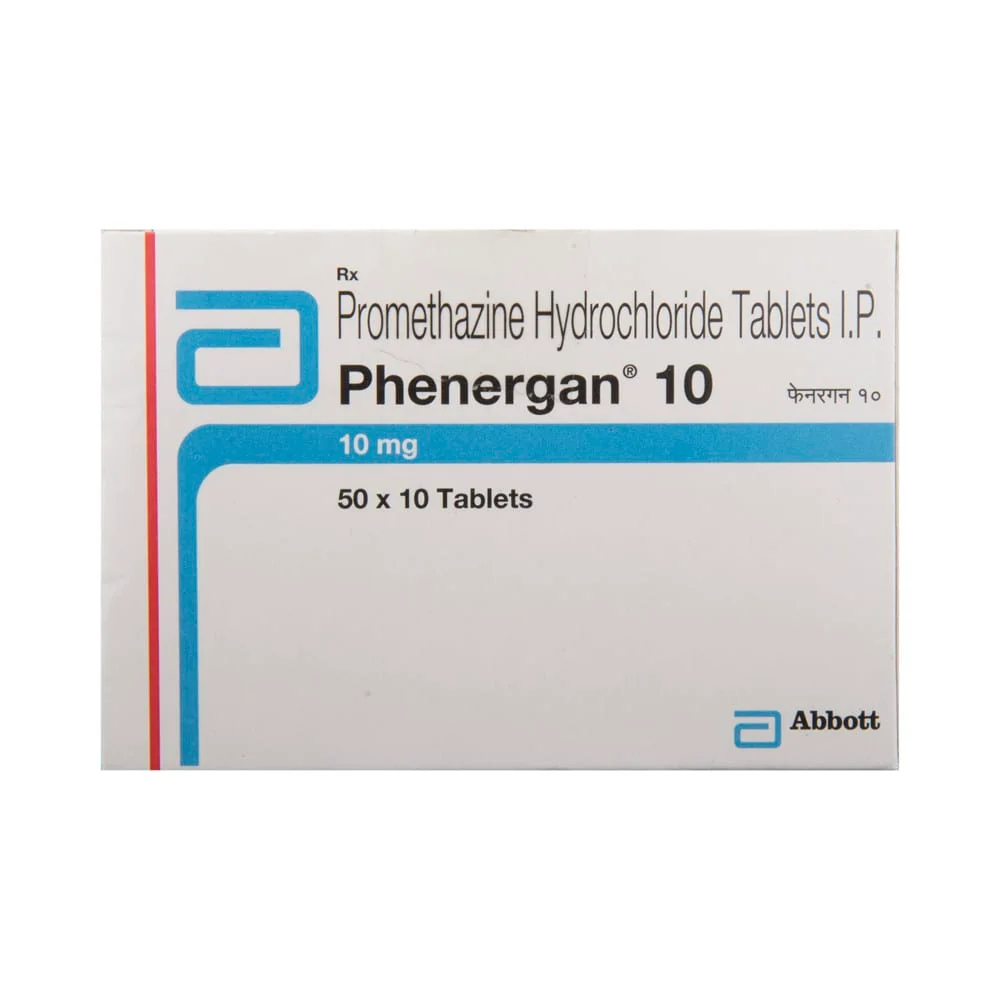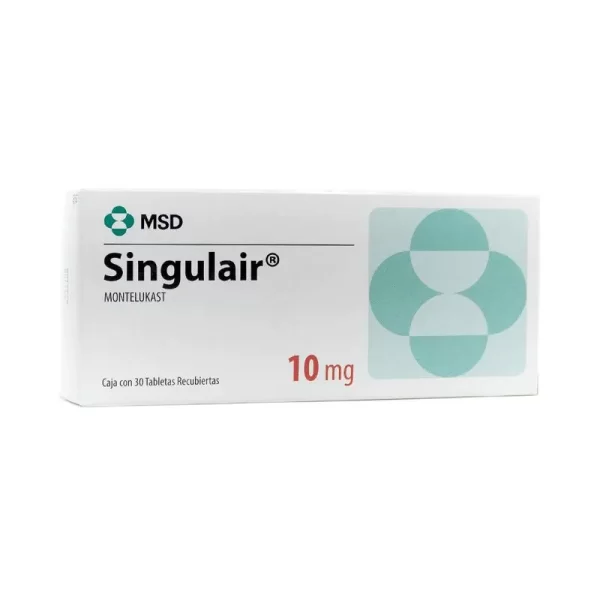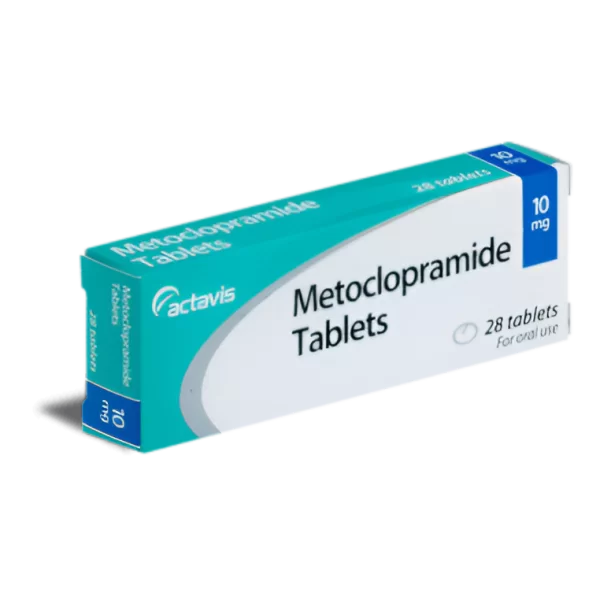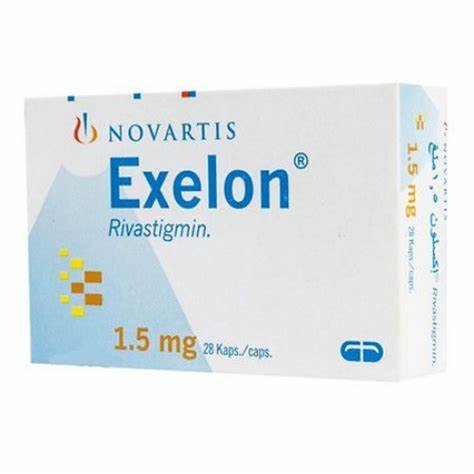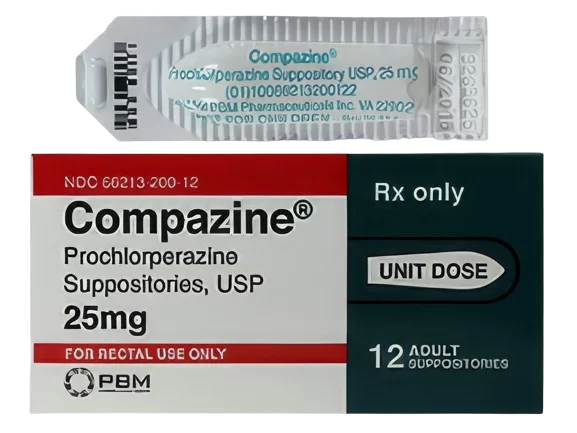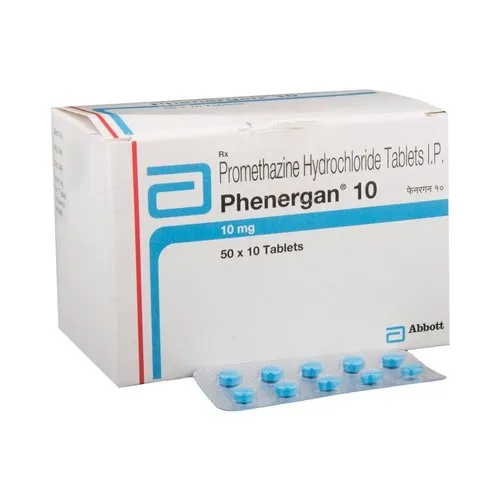
Promethazine
Promethazine - 25mg
Overview of Promethazine
General Introduction to Promethazine
- Promethazine, also known by its brand name Phenergan, is a first-generation antihistamine that possesses antiemetic, sedative, and anticholinergic properties. It is commonly used to treat allergies, nausea and vomiting, motion sickness, and to provide sedation for preoperative and postoperative patients. Promethazine was first approved for medical use in the 1940s and has since become a widely used medication due to its effectiveness in multiple therapeutic areas.
Key Benefits and Unique Properties of Promethazine
- Antihistamine Effect: Effectively reduces symptoms of allergic reactions such as itching, runny nose, and sneezing.
- Antiemetic Action: Prevents and treats nausea and vomiting, including that induced by motion sickness.
- Sedative Properties: Used to induce sedation and as a pre-anesthetic agent.
- Multiple Administration Routes: Available in oral, rectal, and injectable forms, providing flexibility in administration based on patient needs.
- Pain Relief Adjunct: Can be used in combination with analgesics to enhance pain relief.
- Bronchodilator Effects: Helps relieve symptoms of asthma and bronchospasm.
Effectiveness of Promethazine
- Promethazine’s effectiveness has been well-documented in clinical trials and real-world usage. It quickly alleviates allergy symptoms, prevents motion sickness, and provides effective sedation and antiemetic effects. Its multifaceted action makes it a valuable medication for various conditions.
Safety and Tolerability of Promethazine
- Promethazine is generally well-tolerated, but patients should be aware of potential side effects such as drowsiness, dizziness, dry mouth, and blurred vision. Serious side effects can include severe respiratory depression, especially in children under two years old, and neuroleptic malignant syndrome. Close monitoring and adherence to prescribed doses minimize these risks.
Indications for Use of Promethazine
Diseases and Conditions Treated by Promethazine
- Promethazine is indicated for the treatment of allergic conditions, nausea and vomiting, motion sickness, and as a sedative for preoperative and postoperative patients. It is also used as an adjunct to pain relief in certain conditions.
Primary Symptoms and Indications for Promethazine
- Allergic Reactions: Relief of symptoms such as itching, runny nose, sneezing, and hives.
- Nausea and Vomiting: Effective in preventing and treating nausea and vomiting from various causes, including motion sickness and post-surgery.
- Motion Sickness: Prevents and alleviates symptoms of motion sickness.
- Sedation: Provides sedation for patients undergoing surgery or for those needing calmative effects.
- Pain Relief Adjunct: Enhances the effectiveness of pain medications.
Dosage and Administration of Promethazine
Recommended Dosage of Promethazine
- The dosage of Promethazine varies depending on the condition being treated. For allergies, the typical dose for adults is 25 mg taken before bedtime or 12.5 mg before meals and at bedtime. For nausea and vomiting, 25 mg may be administered every 4 to 6 hours as needed. For motion sickness, 25 mg is taken 30 to 60 minutes before travel and repeated every 8 to 12 hours as needed. For sedation, the usual dose is 25 to 50 mg before surgery.
Timing and Frequency of Promethazine Administration
- Allergies: Taken once daily or divided into smaller doses throughout the day.
- Nausea and Vomiting: Administered every 4 to 6 hours as needed.
- Motion Sickness: Taken 30 to 60 minutes before travel and repeated as necessary.
- Sedation: Administered before surgery or as needed for sedative effects.
Additional Recommendations for Promethazine Use
- Proper Use: Follow the dosing instructions provided by a healthcare professional. Do not exceed the recommended dose.
- Missed Dose: If a dose is missed, take it as soon as remembered unless it is almost time for the next dose. Do not double the dose to make up for the missed one.
- Monitoring: Regular follow-up appointments with a healthcare provider are important to monitor progress and adjust the dose if necessary.
Mechanism of Action of Promethazine
Description of Promethazine Mechanism
- Promethazine works by blocking histamine H1 receptors, which helps reduce allergic symptoms. Additionally, it has significant anticholinergic and sedative effects due to its action on the central nervous system.
Biochemical Processes Involving Promethazine
- Histamine Receptor Blockade: Prevents histamine from binding to its receptors, thereby reducing allergic symptoms.
- Anticholinergic Effects: Blocks acetylcholine receptors, leading to sedative and antiemetic effects.
- CNS Depression: Depresses the central nervous system, providing sedative and antiemetic properties.
Physiological Effects of Promethazine
- Symptom Relief: Reduces symptoms of allergies, nausea, and motion sickness.
- Sedation: Induces sedation and calmness.
- Antiemetic Action: Prevents and treats nausea and vomiting.
Composition of Promethazine
Active Ingredients in Promethazine
- The active ingredient in Promethazine is promethazine hydrochloride.
Inactive Ingredients in Promethazine
- Inactive ingredients may include lactose, magnesium stearate, microcrystalline cellulose, and other excipients depending on the formulation. These ingredients help stabilize the formulation and ensure proper delivery of the medication.
Side Effects of Promethazine
General Introduction
- Understanding potential side effects helps ensure the safe use of Promethazine. Patients should be aware of common and serious side effects to monitor their health effectively while on the medication.
Possible Side Effects of Promethazine
- Common Side Effects: Drowsiness, dizziness, dry mouth, blurred vision, constipation, and urinary retention.
- Less Common Side Effects: Confusion, agitation, tremors, and difficulty urinating.
- Serious Side Effects: Rare but serious side effects include severe respiratory depression, neuroleptic malignant syndrome, and severe allergic reactions such as anaphylaxis.
Frequency and Severity of Promethazine Side Effects
- Common side effects are generally mild and manageable with dose adjustments and supportive care. Serious side effects are rare but can be life-threatening, necessitating immediate medical intervention. Regular follow-ups and patient education on correct usage can minimize risks.
Prevention of Side Effects of Promethazine
General Introduction
- Preventing side effects is key to maximizing the therapeutic benefits of Promethazine. By following preventive measures, patients can reduce the likelihood of experiencing adverse reactions.
Tips for Preventing Promethazine Side Effects
- Proper Technique: Use Promethazine as directed, following the instructions for proper administration.
- Regular Monitoring: Regular check-ups with healthcare providers can help detect and manage potential side effects early.
- Consult Healthcare Providers: Inform your healthcare provider about any other medications or supplements to avoid potential interactions.
- Hydration and Nutrition: Maintain adequate hydration and a balanced diet to support overall health.
- Avoid Alcohol: Refrain from consuming alcohol while taking Promethazine to avoid enhanced sedative effects.
Contraindications for Promethazine
General Introduction
- Understanding contraindications ensures the safe use of Promethazine. Certain conditions and diseases may preclude the use of this medication.
Conditions and Diseases Contraindicating Promethazine
- Respiratory Depression: Contraindicated in patients with severe respiratory depression or those at risk of it.
- Comatose States: Should not be used in patients in a comatose state.
- Hypersensitivity: Patients with a known hypersensitivity to promethazine or any of its components should not use this medication. Allergic reactions can include symptoms such as rash, itching, swelling, and difficulty breathing.
- Children Under Two Years Old: Contraindicated due to the risk of fatal respiratory depression.
Warnings/Precautions for Promethazine
General Introduction
- Following precautions is essential to ensure the safe and effective use of Promethazine. Patients should be informed about potential risks and how to mitigate them.
Important Warnings for Promethazine
- Severe Respiratory Depression: Promethazine can cause severe respiratory depression, especially in children under two years old. Use with caution in patients with respiratory conditions.
- Sedation: Promethazine can cause significant drowsiness and sedation. Patients should avoid driving, operating heavy machinery, or engaging in activities that require full alertness while taking this medication.
- Neuroleptic Malignant Syndrome: Rare but serious condition characterized by hyperthermia, muscle rigidity, altered mental status, and autonomic dysfunction. Seek immediate medical attention if symptoms occur.
- Photosensitivity: Can cause increased sensitivity to sunlight. Patients should use sunscreen and wear protective clothing when outdoors.
- Elderly Patients: Use with caution in elderly patients, as they may be more sensitive to the sedative and anticholinergic effects, which can increase the risk of falls and confusion.
Precautions for Promethazine Use
- Regular Monitoring: Regular check-ups with healthcare providers are essential to monitor for potential side effects and ensure effective treatment.
- **Patient Education:**Patients should be educated on the proper use of Promethazine, recognizing signs of serious side effects, and when to seek medical help.
- Caution in Specific Conditions: Use with caution in patients with cardiovascular disease, glaucoma, peptic ulcer, urinary retention, or respiratory conditions like asthma or COPD, as Promethazine can exacerbate these conditions.
- Pregnancy and Breastfeeding: Consult a healthcare provider before using Promethazine during pregnancy or while breastfeeding to ensure safety for the mother and baby.
Missed Dose of Promethazine
General Introduction
- Proper management of missed doses helps maintain effective treatment outcomes. Patients should be aware of how to handle missed doses to avoid disruptions in their treatment regimen.
Steps to Take if a Dose is Missed
- Timely Action: Take the missed dose as soon as remembered unless it is almost time for the next dose.
- Avoid Doubling: Do not double the dose to make up for the missed one. Instead, continue with the next dose as scheduled.
Tips for Adherence to Dosing Schedule
- Set Reminders: Use alarms or reminders on your phone to remember to take your doses.
- Consistent Routine: Take the medication at the same time every day to reduce the likelihood of missing a dose.
- Medication Organizer: Use a pill organizer to keep track of your doses and avoid missing any.
Drug Interactions with Promethazine
General Introduction
- Understanding drug interactions is crucial for ensuring the safe use of Promethazine. Some medications can affect the action of Promethazine or increase the risk of side effects.
Examples of Drug Interactions
- CNS Depressants: Concurrent use with other central nervous system depressants (e.g., benzodiazepines, opioids) can enhance sedative effects and increase the risk of severe drowsiness and respiratory depression.
- MAO Inhibitors: Avoid using Promethazine with monoamine oxidase inhibitors (MAOIs) as it can prolong and intensify the anticholinergic and CNS depressant effects.
- Anticholinergic Drugs: Concurrent use with other anticholinergic medications can increase the risk of side effects such as dry mouth, constipation, and urinary retention.
- Alcohol: Consumption of alcohol can significantly increase the sedative effects of Promethazine, leading to increased drowsiness and impaired motor skills.
Preventing Negative Interactions
- Inform Healthcare Providers: Inform your healthcare provider about all medications and supplements you are taking.
- Monitor for Symptoms: Watch for signs of side effects or unusual reactions and report them to your healthcare provider promptly.
- Read Labels Carefully: Check labels for potential interactions with other medications, especially over-the-counter drugs that may also contain similar active ingredients.
Overdose of Promethazine
Symptoms of Overdose
- Common Symptoms: Overdose can lead to symptoms such as extreme drowsiness, confusion, dizziness, dry mouth, blurred vision, and severe hypotension.
- Severe Symptoms: Severe overdose may result in symptoms like seizures, respiratory depression, and loss of consciousness.
Immediate Actions in Case of Overdose
- Seek Medical Help: Immediately seek medical attention if an overdose is suspected.
- Supportive Measures: Medical personnel may provide supportive measures such as monitoring vital signs, administering activated charcoal, and other symptomatic treatments.
Pharmacokinetics of Promethazine
Absorption
- Rate and Extent: Promethazine is well absorbed from the gastrointestinal tract, with peak plasma concentrations occurring within 2 to 3 hours after oral administration.
Distribution
- Tissue Distribution: Promethazine is widely distributed throughout the body, including the central nervous system. It is highly protein-bound.
Metabolism
- Metabolic Pathways: Promethazine is extensively metabolized in the liver through the cytochrome P450 enzyme system, primarily CYP2D6 and CYP2B6.
Elimination
- Excretion: The metabolites of Promethazine are excreted primarily in the urine, with a minor portion excreted in the feces. The elimination half-life is approximately 10 to 19 hours.
Dosage Forms of Promethazine
Available Forms and Strengths
- Oral Tablets: Typically available in 12.5 mg, 25 mg, and 50 mg strengths.
- Liquid Form: Available as a liquid solution for easier administration, especially in children.
- Injectable Form: Available for use in clinical settings for rapid administration.
- Rectal Suppositories: Available for patients who cannot take oral medications.
Advantages of Different Forms
- Oral Tablets: Convenient for adults and older children.
- Liquid Form: Suitable for children and individuals who have difficulty swallowing pills.
- Injectable Form: Provides rapid relief in acute situations.
- Rectal Suppositories: Useful for patients with severe nausea or vomiting who cannot take oral medications.
Pregnancy and Breastfeeding
Safety During Pregnancy
- Risks to Fetus: The safety of Promethazine during pregnancy has not been fully established. Some studies suggest potential risks, but the benefits may outweigh the risks in certain cases.
- Recommendations: Pregnant women should use Promethazine under the guidance of a healthcare provider, with regular monitoring of both mother and fetus.
Safety During Breastfeeding
- Excretion in Breast Milk: Promethazine is excreted in breast milk in small amounts. The effects on a nursing infant are unknown.
- Recommendations: Consult a healthcare provider before using Promethazine while breastfeeding to ensure safety for the mother and baby.
Storage Conditions
General Storage Recommendations
- Storage Temperature: Store at room temperature between 20°C to 25°C (68°F to 77°F).
- Protection from Light and Moisture: Keep in the original packaging, protected from light and moisture.
Shelf Life
- Expiration Date: Check the expiration date on the package and do not use the medication after it has expired.
Clinical Trials and Efficacy
Overview of Clinical Trials
- Study Design and Methods: Clinical trials include randomized controlled trials assessing the efficacy and safety of Promethazine in treating allergic reactions, nausea, vomiting, and motion sickness.
Key Findings and Conclusions
- Efficacy Results: Studies have shown that Promethazine effectively alleviates allergy symptoms, prevents and treats nausea and vomiting, and provides significant sedation. It provides quick relief, usually within 30 minutes to an hour of administration.
- Safety Profile: Side effects are generally manageable with dose adjustments and monitoring. Serious side effects are rare when used correctly.
Conclusion
Summary of Key Aspects:
- Promethazine is a versatile medication for managing allergies, nausea, vomiting, and providing sedation. It offers significant benefits in symptom relief and has multiple administration routes for flexibility in treatment.
Recommendations for Improving Therapy:
- Follow healthcare professional instructions, adhere to prescribed dosages, and attend regular check-ups to optimize treatment and minimize side effects. Monitoring and adjusting lifestyle factors, such as avoiding alcohol and maintaining hydration, can further enhance the therapeutic benefits.
Final Conclusion:
- Promethazine provides essential support in managing allergies, nausea, vomiting, and sedation, helping to improve the quality of life for patients. Proper use and adherence to precautions maximize the therapeutic benefits and minimize risks, offering substantial improvements in patient health and well-being.
